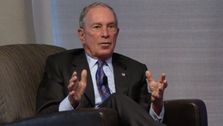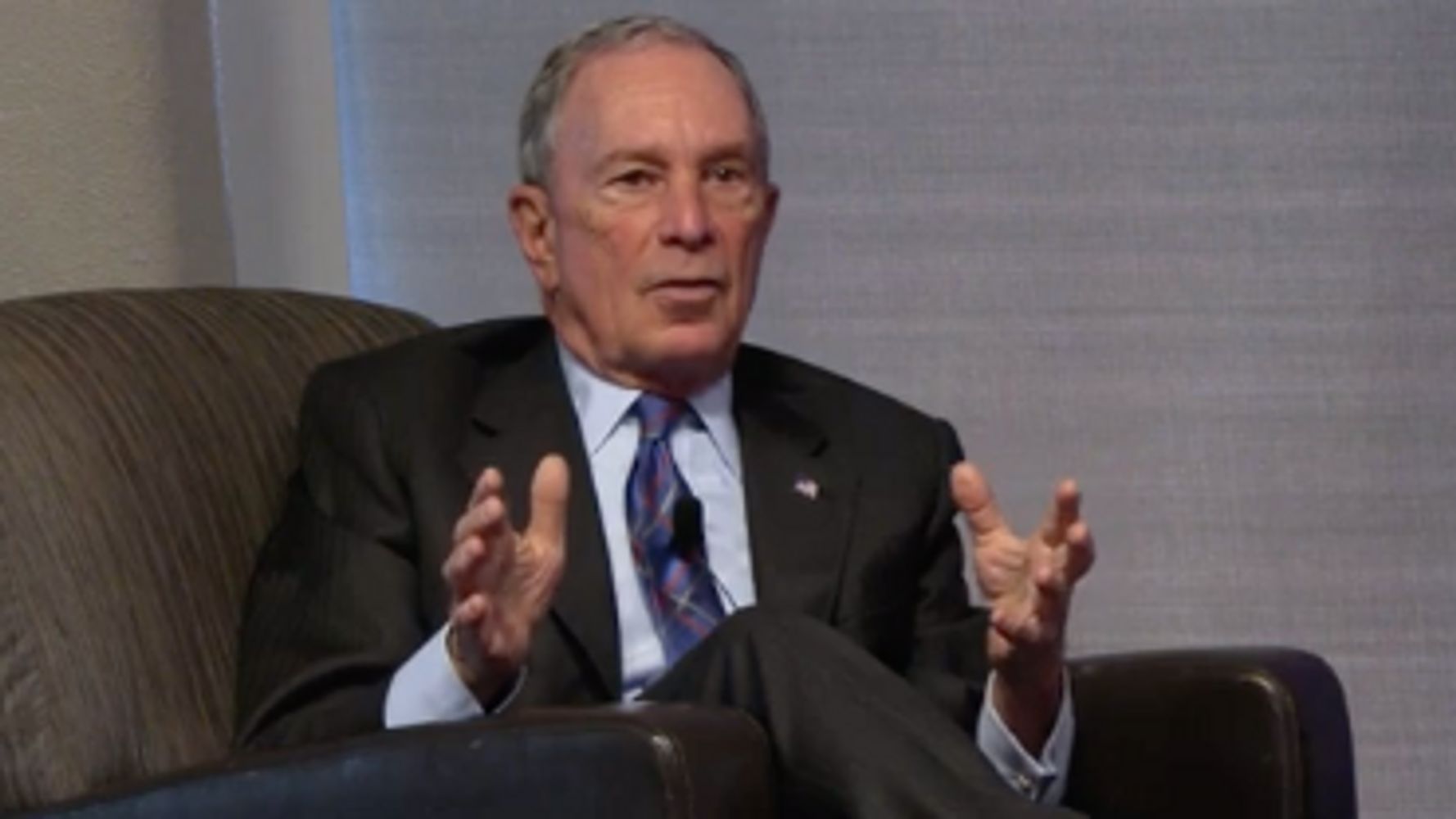[ad_1]

Democratic presidential hopeful Michael Bloomberg released a plan last month to restore voting rights to convicted felons who have served their sentences, but he didn’t seem too enthusiastic about the issue just a year earlier.
During an event at New York University in May 2018, the former New York mayor lamented that “good government” advocates, such as those who pushed for a moratorium on earmarks, were getting in the way of “practical stuff,” including elections apparently.
“What is the purpose of elections? In America, it is to give everybody the ability to express themselves,” Bloomberg said during the Q&A with Miami Marlins co-owner Ari Ackerman. “And so we argue about whether or not convicted felons who have served their time could vote. I don’t know why we spend so much time ― they’re not going to vote anyway. They’re so few, come on.”
He added: “We argue about whether the right age is 21 or 18, or whatever. Why don’t we maybe say, ‘If you’ve never taken a civics course, or you don’t know history and you can’t read, you shouldn’t be able to vote.’ That’s not what we do. In America, our elections are on making sure people have a right to express themselves.”
Scroll down to watch Bloomberg’s Q&A with Ari Ackerman.
Bloomberg has abruptly reversed his positions on several controversial issues in the months surrounding the November announcement of his presidential candidacy, and his take on restoring voting rights for convicted felons appears to fit the pattern.
For instance, in 2018, he argued that increasing the minimum wage was one of the many “impediments to job creation.” Now that he’s running for president, he supports a $15 minimum wage, following the rest of the Democratic field.
What’s more, Bloomberg was a staunch proponent of the controversial stop-and-frisk policing policy, which disproportionately affected Black and Latino communities, during most of his mayoral tenure. He was heard defending the policy as recently as 2015, claiming “all the crime” takes place in minority communities.
Just months before formally announcing his presidential campaign, Bloomberg publicly apologized for embracing stop and frisk, which has been condemned by his fellow Democratic candidates and civil rights activists as racist.
There are 11 states in the U.S. that strip individuals with felony convictions of their right to vote indefinitely (unless granted a governor’s pardon in certain cases). In 21 additional states, convicted felons don’t immediately regain their right to vote after finishing their sentences and may be required to pay fees first.
Like stop and frisk, felony disenfranchisement policies have a disproportionate impact on communities of color. As of 2016, 6.1 million voters were barred from voting due to such policies, according to the Sentencing Project. About 2.2 million Black citizens are prohibited from voting, the group reported.
Black Americans of voting age are four times more likely to lose their voting rights than the overall adult population, and in four states ― Florida, Kentucky, Tennessee and Virginia ― more than one in five Black adults are disenfranchised, according to the Sentencing Project.
“In prison, they made sure to tell us, ‘You will never be able to vote, unless the governor restores your rights,’” Assaddique Abdul-Rahman, a convicted felon who became an organizer for voting rights after his release, told The New York Times in 2018. “I knew that those who could not vote did not have power. We were the underbelly.”
But Bloomberg, that same year, shrugged off the issue, declaring in his throwaway remark that convicted felons wouldn’t vote even if they had the chance. Of course, his statement 13 months later announcing his plan to restore those rights struck a decidedly different tone.
“The right to vote is the fundamental right that protects all of the others, but in states around the country, it is under attack,” he said in his statement. “That’s a disgrace to our Constitution and an insult to generations of people who fought and marched to win the right to vote.”
Bloomberg’s eyebrow-raising remarks at NYU didn’t end with voting rights for ex-felons. He went on to suggest that he doesn’t “find a problem” with requiring certain academic and professional criteria for presidential candidates, like in Singapore.
He also defended Chinese President Xi Jinping’s move to end presidential term limits, joking that he’s “a little conflicted.” New York’s city council voted in 2008 to extend term limits from two terms to three terms so Bloomberg could run as mayor again.
“Xi Jinping changed term limits ― I’m a little bit conflicted in this,” Bloomberg said with a chuckle, drawing muffled laughter from the NYU audience. “But Xi Jinping changed term limits and there was no outcry. Why? Because they think he’s doing a good job. And if he’s not doing a good job, they’ll find a way to get rid of him. … When I changed term limits, some people didn’t like it, but it was perfectly legal.”
While Xi has maintained substantial support among impoverished communities, he has increased censorship and mass surveillance, and intensified a crackdown on dissent. Despite the potential for punishment under Xi’s regime, there was, in fact, some public outcry over the government’s decision to abolish presidential term limits.
One Chinese newspaper editor told The Associated Press at the time that the measure would “sow the seeds of chaos.” A pro-reform businessman called it “an outright betrayal.”
But Bloomberg, a billionaire businessman with financial interests in China, has shielded Xi, an autocratic leader, from public scrutiny to protect his own fortune.
Bloomberg’s campaign did not immediately respond to a request for comment.
Watch Bloomberg’s full interview with Ackerman below. His comments about voting rights for ex-felons begin around the 41:30 mark.
Calling all HuffPost superfans!
Sign up for membership to become a founding member and help shape HuffPost’s next chapter
[ad_2]
Source link

